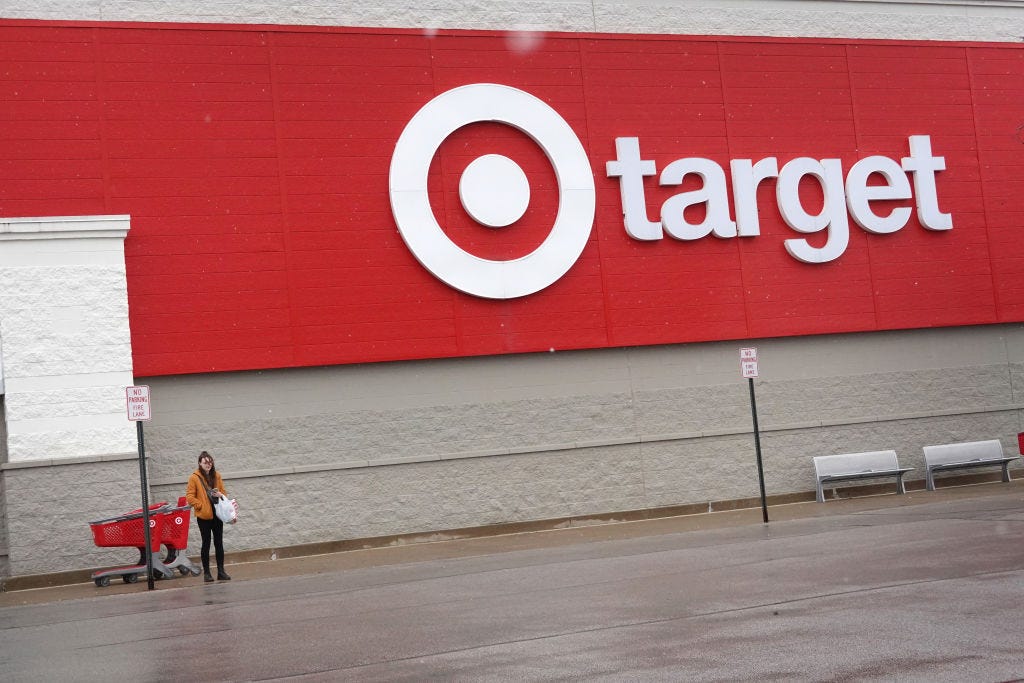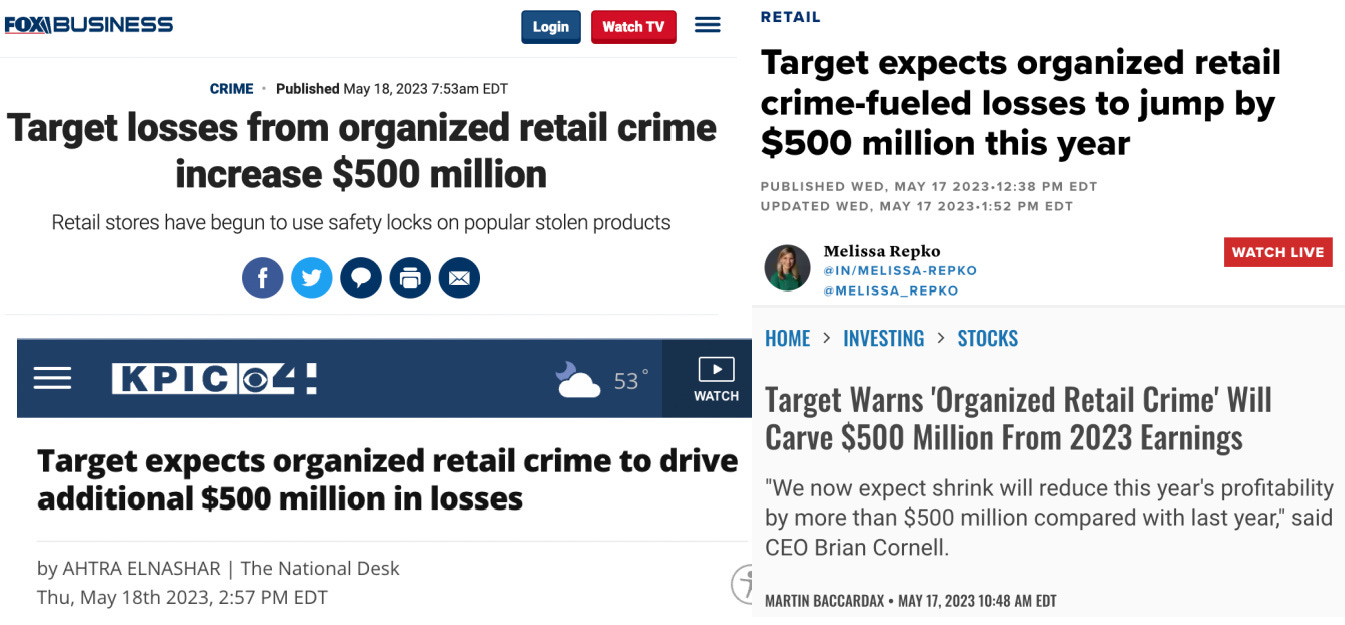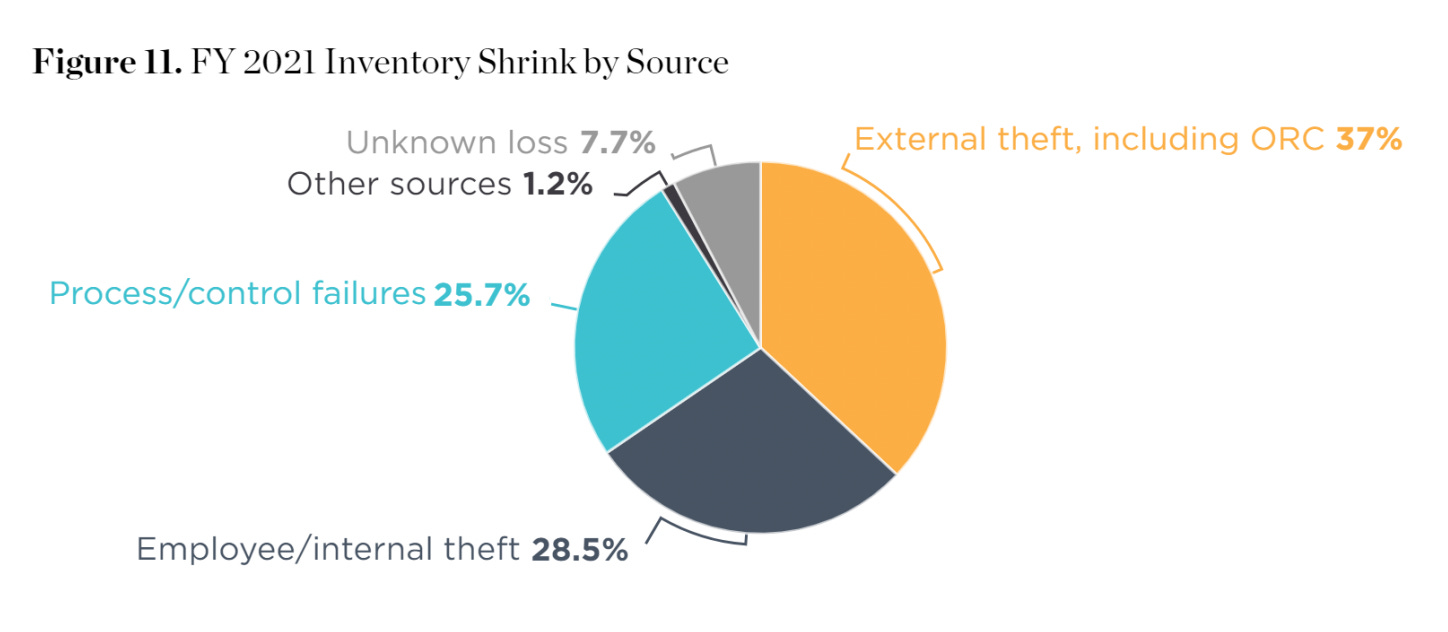Popular Information - Off Target
In March 2020, we took down Popular Information's paywall. Since then, 632 editions of Popular Information have been freely available to everyone. That work has repeatedly rattled the cages of the powerful. And consider some of what we've been able to do in just the last few weeks:
But to ensure Popular Information can continue to thrive without a paywall, we need 50 people to upgrade to a paid subscription in the next 24 hours. Your support will help keep Popular Information's groundbreaking accountability journalism accessible and maximize its influence. As a special incentive, for one day only, we are offering 20% off the subscription price. With this discount, upgrading to a paid subscription costs just $40 per year or $4.80 monthly. There is no paywall, but a paid subscription does have its benefits. For one, you won't have to read appeals like this anymore. Also, you will be able to comment and connect with the Popular Information community. But mostly, you will help create an even more powerful source for independent accountability journalism. Last week, major news outlets reported that Target expects to suffer an additional $500 million in losses due to a surge in "organized retail crime." There is one major problem with these headlines: they are objectively false. The reports were based on Target's earnings call for the first quarter, which took place on May 17. During the call, Target did not say that losses from "organized retail crime" would increase by $500 million in 2023. Rather, Target estimated that its total inventory "shrink" in 2023 would increase by $500 million this year. Here is a direct quote from Target Chief Financial Officer Michael Fiddelke:
"Shrink" is an industry term that refers to missing inventory, and it has multiple causes, including inventory mismanagement, employee theft, and external theft. According to the National Retail Federation (NRF), an industry lobbying group that represents Target and other major retailers, about two-thirds of shrink is attributable to causes other than "external theft," the category that includes shoplifting. Organized retail crime (ORC) is a subcategory of external theft. It is ambiguously defined by the NRF as "the large-scale theft of retail merchandise with the intent to resell the items for financial gain." The NRF does not define how much merchandise needs to be stolen to qualify as "large-scale theft." Target did not estimate what percentage of its shrink was attributable to external theft or the narrower category of ORC. Instead, Cornell opined that "theft and organized retail crime are increasingly urgent issues." Target presented no data supporting the contention that ORC is increasing. But even if ORC is contributing to Target's increased shrink, it is a fraction of the $500 million figure widely reported in the media. What percentage of external theft shrink is attributable to ORC across the industry? A spokesperson for the NRF told Popular Information that it does "not have estimates specific to ORC." Notably, the NRF previously estimated the cost of ORC. In a 2020 study, the NRF estimated that ORC "costs retailers an average of $719,548 per $1 billion dollars in sales." This was the figure self-reported by a lobbying group promoting ORC as a crisis. If the NRF's 2020 estimate has held, it means about 0.07% of sales, or 5% of total retail shrink, is attributable to ORC. If ORC at Target is in line with the industry, it means Target is projecting ORC will drive $25 million in additional shrink this year, not the $500 million figure featured in headlines. That's little more than a rounding error for Target, which recorded $106 billion in sales in 2022. In response to an inquiry from Popular Information, Target declined to comment on the erroneous coverage of its earnings call or specify how much of the $500 million in shrink was attributable to ORC. Instead, a Target spokesperson sent the following statement:
If a surge in ORC is driving an increase in shrink, it is not showing up in the industry's own data. In 2021, the latest data available, an NRF survey, found that retailers lost an average of 1.4% of inventory to shrink. That's down from 1.6% in 2020. And for nearly a decade, shrink in the retail industry has hovered around 1.4%. Why does any of this matter? Target, other major retailers and the NRF are using anxiety created by headlines promoting an alleged surge in "organized retail crime" to push for new — and more punitive — criminal laws. Cornell said Target is "actively collaborating with legislators, law enforcement, and retail industry partners to advocate for public policy solutions to combat organized retail crime." Retailers are incentivized to pin the blame on ORC and other kinds of theft for poor performance. Jonathan Simon, a criminal justice professor at UC Berkeley School of Law, explained that it is "easier for companies and the public to blame theft for store closures and retail struggles than admit stores’ over-expansion, strategy mistakes and customers abandoning stores for online shopping." The consequences of overhyping "organized retail crime"Retailers have successfully translated angst about a purported surge in ORC into harsher criminal laws for non-violent theft. In Louisiana, for example, stealing something of any value in a group of three can now result in "imprisonment with or without hard labor" for up to seven years. The Marshall Project reported that in 2022 legislators in California, Florida, and North Carolina also stiffened penalties for "organized" theft. This year, "lawmakers in at least 11 states are considering legislation that would more harshly punish people caught stealing from stores with the intent to resell merchandise." New laws targeting ORC are being deployed in a racially discriminatory manner. In Texas, for example, "[a]nyone caught stealing up to $1,500 of merchandise could either face a typical property theft charge or an organized theft charge, which carries a steeper penalty." An analysis of seven years of arrest data by Southern Methodist University statistician Michael Braun found "Black people were arrested and charged with organized retail theft more than twice as often as their White peers." The industry has also used the specter of a shoplifting epidemic to oppose lowering the value of goods stolen for shoplifting to be considered a felony. According to a Pew report, since 2000, "at least 39 states have increased the value of stolen goods required to trigger a felony charge." The study found that "[s]tates that increased their thresholds experienced the same overall decline in property crimes over the last two decades as states that did not." Walgreens admits it "cried too much" At least one retailer has already admitted that the shoplifting "epidemic" is overblown. In January 2023, Walgreens Chief Financial Officer James Kehoe admitted the company "cried too much last year" about shoplifting. Kehoe added that theft at Walgreens had “stabilized,” and the company was "quite happy with where we are." Kehoe's comments came one year after he blamed Walgreens' poor performance on organized retail crime. In 2022, Kehoe said that part of the reason Walgreens reported lackluster earnings was because of “gangs that actually go in and empty our stores of beauty products.” Like Target, Walgreens did not specify how much of its "shrink" was attributable to external theft or organized retail crime. But shrink turned out to be less of a problem than Walgreens made it out to be and in 2023, the company announced it would begin spending less on private security. "Although we are pleased to see retail shrink levels stabilize, this is still a serious national problem affecting us all and all retailers," Walgreens told Popular Information. |
Older messages
UPDATE: New federal lawsuit says Florida book bans are unconstitutional
Thursday, May 18, 2023
Since December, Popular Information has detailed the extraordinary number of book bans being pursued in Escambia County, Florida. Much of this activity is being driven by one woman, high school English
How a grocery store mega-merger could cost workers millions
Wednesday, May 17, 2023
In October 2022, Kroger, the nation's largest supermarket chain, reached an agreement to purchase Albertsons, the nation's second-largest supermarket chain, in a deal valued at $25 billion.
Florida teacher under state investigation for showing 5th graders a Disney movie
Tuesday, May 16, 2023
After a long day of standardized testing, Florida fifth-grade teacher Jenna Barbee decided the students needed a break. She had the students watch a Disney movie, Strange World. Now, Barbee, a first-
Musk bows to Turkey's autocratic government, censors Twitter before critical election
Monday, May 15, 2023
Elon Musk, a self-described "free speech absolutist," agreed to censor Twitter in Turkey on Saturday, the day before a critical election, at the request of the nation's autocratic
"Women's Bill of Rights" created by secretive group that opposes women's rights
Friday, May 12, 2023
On April 27, the Republican-controlled Kansas legislature overrode Governor Laura Kelly's (D) veto to pass a law that legally defines an individual's sex as “an individual's sex at birth,
You Might Also Like
☕ Fannie and Freddie
Sunday, January 12, 2025
Can the NHL pull off outdoor games in Florida? Morning Brew January 12, 2025 | View Online | Sign Up | Shop Walking a bike on a snow-covered bridge in Amsterdam. Marcel Van Hoorn/ANP/AFP via Getty
DEI Loses Popularity, Death Toll Rises in LA, and a Special Kind of Library
Sunday, January 12, 2025
Meta is ending its key diversity, equity and inclusion programs, joining corporate giants Ford, McDonald's and Walmart that have pulled the plug on DEI initiatives. ͏ ͏ ͏ ͏ ͏ ͏ ͏ ͏
UW and computer science student reach truce in ‘HuskySwap’ spat
Saturday, January 11, 2025
Blue Origin set for first orbital launch | Zillow layoffs | Pandion shutdown | AI in 2025 ADVERTISEMENT GeekWire SPONSOR MESSAGE: GeekWire's special series marks Microsoft's 50th anniversary by
Cryptos Surrender Recent Gains | DOJ's $6.5 Billion Bitcoin Sale
Saturday, January 11, 2025
Bitcoin and other tokens retreated as Fed signaled caution on rate cuts. Forbes START INVESTING • Newsletters • MyForbes Presented by Nina Bambysheva Staff Writer, Forbes Money & Markets Follow me
Just Buy a Balaclava
Saturday, January 11, 2025
Plus: What Raphael Saadiq can't live without. The Strategist Every product is independently selected by editors. If you buy something through our links, New York may earn an affiliate commission.
Up in Flames
Saturday, January 11, 2025
January 11, 2025 The Weekend Reader Required Reading for Political Compulsives 1. Trump Won't Get the Inauguration Day He Wanted The president-elect is annoyed that flags will be half-staff for
YOU LOVE TO SEE IT: Biden’s Grand Finale
Saturday, January 11, 2025
Biden drills down on offshore drilling, credit scores get healthier, social security gets a hand, and sketchy mortgage lenders are locked out. YOU LOVE TO SEE IT: Biden's Grand Finale By Sam Pollak
11 unexpected things you can put in the dishwasher
Saturday, January 11, 2025
(And 7 things you should keep far away from there) View in browser Ad The Recommendation January 11, 2025 Ad 11 things that are surprisingly dishwasher-safe An open dishwasher with a variety of dishes
Weekend Briefing No. 570
Saturday, January 11, 2025
Black Swan Threats in 2025 -- Why Boys Don't Go To College -- US Government's Nuclear Power Play ͏ ͏ ͏ ͏ ͏ ͏ ͏ ͏ ͏ ͏ ͏ ͏ ͏ ͏ ͏ ͏ ͏ ͏ ͏ ͏ ͏ ͏ ͏ ͏ ͏ ͏ ͏ ͏ ͏ ͏ ͏ ͏ ͏ ͏ ͏ ͏ ͏ ͏ ͏ ͏ ͏ ͏ ͏ ͏ ͏ ͏ ͏ ͏
Your new crossword for Saturday Jan 11 ✏️
Saturday, January 11, 2025
View this email in your browser Take a mental break with this week's crosswords: We have six new puzzles teed up for you this week. Play the latest Vox crossword right here, and find all of our new



